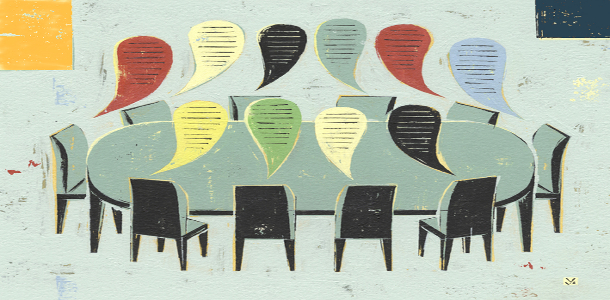Posted by laurajane on Nov 6, 2013 in Uncategorized | Comments Off on Fortunes for professional writers





Your writing pet peeves
Last week, I shared some of my writing pet peeves, among them: periods in a phone number, misuse of apostrophes, and lazy corporate verbs. I also asked PR Daily readers to share some of theirs. Turns out, you all have a lot of issues. Here is just a sampling (Editor’s note: Posts are unedited): • “One of my biggest writing pet peeves is hyphens used after prefixes when the punctuation is not needed, such as nonproper. Some other examples: nonmarketable, noninvasive, nondairy, noncommercial, nonmilitary.” • “My #1 pet peeve is hearing ‘John and I’s...

10 writing pet peeves
They’re like nails on a chalkboard, the sound traveling up and down your spine. They burn, they hurt, they annoy. I’m talking about writing pet peeves—those grammar mistakes, usage gaffes, spelling errors, and style slips that you immediately change, no matter whose work you’re editing. We all have writing pet peeves, though what annoys us varies. Here are a few of mine: • The use of over with a quantity—over $65 million or over 10 percent. I change over to more than—more than $65 million or more than 10 percent. • I hate periods in a phone number—512....

Posted by laurajane on Oct 15, 2013 in Uncategorized | Comments Off on 41 redundancies you should ditch
41 redundancies you should ditch
As corporate communicators and PR professionals, we’ve all experienced writer’s block. But how about editor’s block? I‘ve always believed that editing someone else’s work is easier than writing your own. Lately, though, I’ve been asked to “work my magic” on so many bad writing projects—blog posts, emails, articles—that I am not so sure anymore. Sometimes I just stare at the screen wondering, “What can I possibly do with this?” Because I am not paid to stare at the screen, I have to start somewhere. A good place to start is to cut the clutter and...

Avoid mangling your metaphors
I’ve previously written about figures of speech and rhetorical devices. When used correctly, these phrases help us paint word pictures, adding depth to our messages. When used incorrectly, the results can be confusing and unintentionally humorous. “I conclude that the city’s proposal to skim the frosting, pocket the cake, and avoid paying the fair, reasonable, and affordable value of the meal is a hound that will not hunt.” (a quote from a Boston Globe article, May 8, 2010) Here’s a closer look at two figures of speech that end up mangled quite frequently...

Posted by laurajane on Oct 2, 2013 in Uncategorized | Comments Off on 10 tricks of the Web writing and marketing trade
10 tricks of the Web writing and marketi...
Traditionally, marketing sells by sending information to people. Marketers produce brochures, send direct mail or email, or place advertising. This is known as “push.” The marketer starts the conversation. On the Web, most contacts are “pull.” People come to your site to find information; the visitor starts the conversation. And you must converse—you must satisfy their information need before you can market to them. Here are a few things to keep in mind as you craft your marketing content. Marketers often think in terms of how to draw people in. On the Web, the...

Posted by laurajane on Sep 24, 2013 in Uncategorized | Comments Off on You’ve never heard of the interrobang?!
You’ve never heard of the interrob...
It’s the Wild West out there—in the world of style and usage, that is: nouns becoming verbs; literally now meaning not literally; and now, made-up punctuation marks. I am referring to the interrobang, which I had never heard of until a friend recently told me about it. A “new social media icon” according to The Guardian, the interrobang is a non-standard punctuation mark—?! or !?—used at the end of a sentence that asks a question in an excited manner, expresses excitement or disbelief in the form of a question, or asks a rhetorical question. For...













